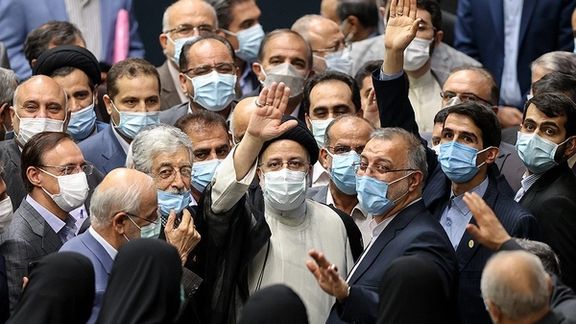Hardliners In Iran Slam Media At Home And Abroad For Criticism

IRGC media accuse ‘reformist’ media in Iran of being in “unison” with their foreign-based peers, criticizing the government for forced hijab and nuclear policy.

IRGC media accuse ‘reformist’ media in Iran of being in “unison” with their foreign-based peers, criticizing the government for forced hijab and nuclear policy.
In a commentary Tuesday, the IRGC-linked Fars news agency attacked reformist media for printing articles and commentaries that it said were “in unison with hostile media”.
Iranian officials and hardliners refer to Persian language media based outside Iran such as the BBC’s Persian channel, Iran International TV, Voice of America (VOA), and Manoto TV as ‘hostile media’.
Fars specified criticism of the government’s nuclear policies and crackdown on women for not abiding by hijab rules. Critics say that confronting, harassing and arresting women on the streets is similar to the way the Taliban in Afghanistan act. Fars said that the media’s coverage of this criticism shows their shared goals.
One of the newspapers attacked by Fars in its commentary was Etemad, which in a recent article headlined “Radical Principlists Fear [Nuclear] Agreement” said ultra-hardliners are pressuring the government to forego the revival of the 2015 nuclear deal.
The commentary then cited an analysis by the website of Voice of America which argued that failing to reach an agreement with world powers to restore the deal, officially known as the Joint Comprehensive Plan of Action (JCPOA) within a few weeks would entail military and economic risks for Iran.
Loss of trust in the state media’s impartiality in reporting among many Iranians has led to the ever increasing popularity of foreign-based Persian language television channels at the expense of the state broadcaster (IRIB) despite its huge budget and massive organization employing more than 40,000 people.
A poll conducted by Gamaan polling agency in the Netherlands in 2021 found Iran International TV and Manoto TV, both based in London, as the most popular media outlets in Iran.
Iran has one of the world’s worst media and internet censorships, with tens of thousands of websites blocked since the early 2000s and most social media platforms banned. In the absence of free media and the very high level of censorship, many Iranians turn to social media for political news and information.
Some 60 percent of those contacted by Gamaan said they never watch the news on the Iranian state-run television, the agency said, adding that generalization of the results of the survey to the general public are valid by a 95% coefficient.
Those taking part in the survey were literate Iranians over 19 years of age, representative of 85 percent of the adult population in Iran.
According to the findings of the survey, 33% respondents in the poll said they watch the Iran International TV daily. This makes the network the most popular Persian speaking foreign based news channel in Iran.
Next on the popularity ladder were Manoto TV with 30%, BBC Persian TV with 17%, both London-Based, as well as Jam TV, based in Turkey, with 16.5%, followed by the Iranian state TV at 16 percent, the Washington-based VOA TV also known as PNN with 11 percent popularity.
The country’s only broadcasting organization which operates under the supervision of Supreme Leader Ali Khamenei’s office is now controlled by ultra conservatives. Khamenei also appoints the IRIB’s chief.